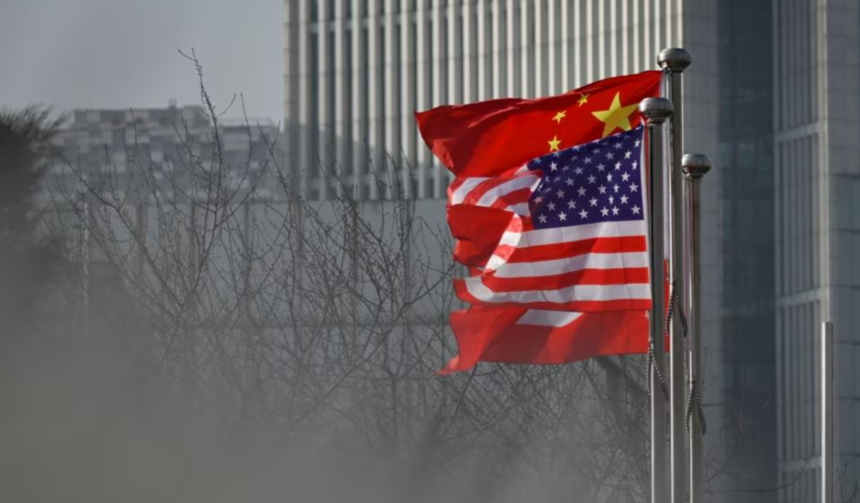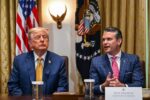China has pledged to take “all necessary countermeasures” after U.S. President Donald Trump announced that he would impose an additional 10% tariff on Chinese imports.
Trump’s decision will take effect next Tuesday, alongside a 25% tariff on imports from Canada and Mexico, escalating the trade war between the two largest economies in the world.
The new 10% tariff on Chinese imports will be added to the existing 25% tax, a decision Trump made earlier this month.
Trump had previously announced—and then suspended—the 25% tariff on Canadian and Mexican imports earlier this month. However, the one-month suspension will end on Tuesday. The tariffs, according to the U.S., are being imposed due to illegal immigration and the smuggling of fentanyl.
After being asked by reporters whether the tariffs would go into effect next week, Trump wrote on social media Thursday that the proposed tariffs would be implemented on the scheduled date, March 4, “unless the fentanyl issue is stopped or limited.”
“Also, on that date, China will face an additional 10% tariff,” he said, referring to March 4.
In response to Trump’s accusations that Beijing is contributing to the fentanyl crisis in the U.S., a spokesperson for the Chinese Ministry of Commerce said on February 28 that Washington is “shifting the blame.”
“China is one of the countries with the strictest drug policies in the world. However, the U.S. side has always ignored these facts,” the statement said.
“If the U.S. side insists on continuing in this way, the Chinese side will take all necessary countermeasures to protect its legitimate rights and interests,” the spokesperson added.
The statement also said that increasing tariffs “does not help solve the U.S. problems,” adding that it would “increase the burden on American companies and consumers and undermine the stability of the global industrial supply chain,” according to REL.
Next week, China’s leadership will meet to present plans on how to protect the Chinese economy from Trump’s threats.
Mexico’s President Claudia Sheinbaum said a day earlier that she hopes to discuss the matter with Trump to avoid the proposed tariffs.
Meanwhile, Canadian Prime Minister Justin Trudeau stated that officials are working tirelessly to avoid the U.S. tariffs, but Canada would “immediately” respond if the measures take effect next week.
Trudeau has repeatedly emphasized that less than 1% of fentanyl and illegal migrants entering the U.S. pass through the Canadian border.







